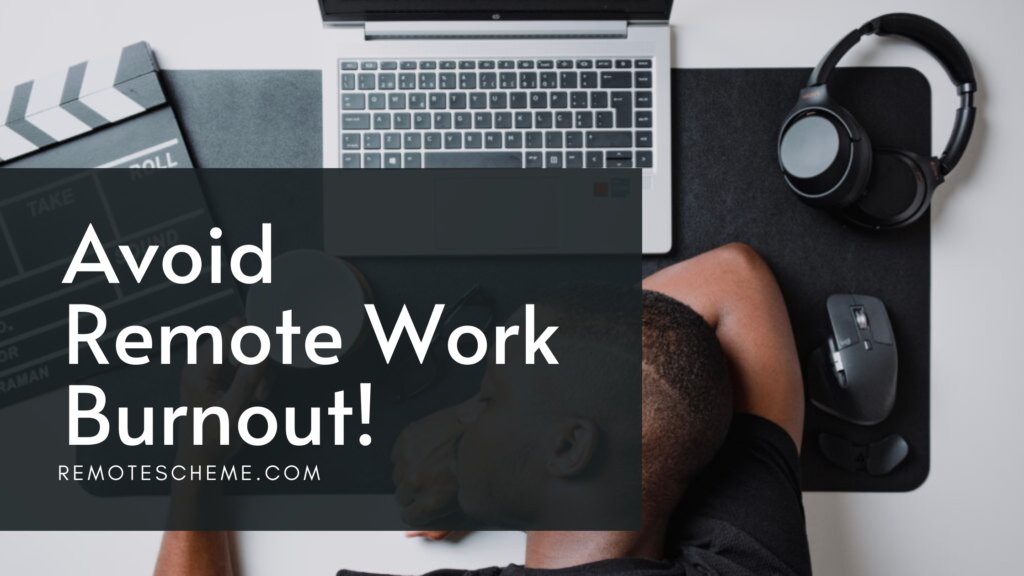Since the coronavirus pandemic, the popularity of hybrid and fully remote work models has increased immensely. Although some people enjoy working from home, almost half of the at-home workers can’t deal with remote work anxiety.
Luckily, there are a few tips that can help you overcome the stress and switch how you feel toward working from home. The solution can be as simple as setting a routine for yourself, exercising, or taking a break now and then.
In this article, you’ll learn how to deal with the anxiety and stress caused by working remotely.
How To Deal With Remote Work Anxiety?
According to a recent survey done on 1,000 U.S. remote workers, 47% reported feeling the effects of remote work anxiety. That’s especially after their coworkers have returned to the office in hybrid workplaces.
Anxiety usually happens due to many factors, like stress, burnout, or what’s called fear of missing out (FOMO). So, here are a few pretty helpful pointers on dealing with remote work anxiety:
#1. Prepare A Distraction-free Work Space
While it might seem tempting to work from the comfort of your bed, it’s a terrible idea to do so. That’s because it’s better for your mental health to set boundaries between work and home, even if it’s by utilizing a tiny corner of your house.
So, make sure to dedicate a quiet area away from distractions for your work.
Whether it’s an enclosed space or open to the rest of the house, you can set it up by preparing the following:
- A table or desk with a comfortable chair and a footrest for maximum convenience
- Good lighting and a strong internet connection
- Everything you’d need, like stationery, chargers, your phone, laptop, and so on
- Headphones with a noise cancellation feature to eliminate any surrounding sounds (the TV, kids, pets, etc.)
#2. Stick To A Well-structured Schedule
This is one of the most essential tips that you’d almost instantly notice the advantages of. Whether you have specific or flexible work hours, managing your time by creating a routine can be highly efficient.
This is because, by predetermining and organizing most of the tasks you should do during a given day, you free up space in your mind for more important decisions.
What’s more, it can be quite challenging to separate between work and personal time without a clear schedule.
This, in turn, can lead to several anxiety-related issues. That’s why it’s pretty critical to prioritize your mental well-being while creating this routine.
Here’s what you need to do to create a successful daily schedule:
- Follow a consistent sleeping schedule by trying to wake up and go to bed every day at the same time
- Create morning rituals to get out of the sleep mood, for example, change your clothes, exercise, go out for a walk, enjoy a cup of coffee, read a book, listen to some music, and so forth
- Enjoy a lunch break at the same time every day to refuel your body and refresh your mind
- Take multiple short timeouts along the workday to walk around and stretch your feet
- Prioritize the tasks according to their difficulty level, starting with the most challenging to avoid feeling overwhelmed at the end of the day
- Try utilizing technology to help you with setting a routine by using a mobile app for time management
- Stop working, responding to emails, or checking notifications when your work day ends.
#3. Dedicate Time For Social Interactions
Working from home can magnify the feelings of isolation inside a person. That’s why it’s quite critical to focus on dedicating some time during the day to connect with people.
So, try to get together with friends through a video call. Moreover, if you can do that offline, it would be great too. Make friend gatherings a weekly habit to catch up and free your mind from the stress it faces on a daily basis.
Additionally, it helps to talk about your feelings with your colleagues. That’s especially when they’re feeling the same as you are. This way, you get to support each other. What’s more, talking to your manager about your concerns helps a lot too.
#4. Embrace Your Work Capacity On Your Down Days
You should never push yourself to achieve more work than you can, especially on days when you’re not feeling encouraged. So, be kind to yourself and acknowledge your inability to be consistently productive.
Setting realistic expectations helps you fight away the negative feelings that overwhelm you on days like this.
When you do that, whether by writing a list or making a schedule, you’d know exactly what to expect from your day. Thus, you become less likely to overcommit to other unnecessary tasks.
#5. Set Boundaries By Learning How To Say No
While it can be hard to work with others around, it’s rather essential to set clear boundaries. So, it can be helpful to discuss your needs with your family members.
You can do that by sharing your schedule with them and clarifying that you need quiet time to work.
This, in turn, would make you feel more comfortable saying no to some requests. That’s especially when they interfere with your ability to get your work done.
Likewise, setting boundaries also goes the other way around. This means that when your work day is over, you should switch off. Although it can be hard to ignore the urge to respond to emails and notifications, you must learn how to do it.
Consequently, you get to focus on your work during the designated hours and enjoy some time with your family when you finish.
A Final Thought
Working from home might seem too good to be true at the beginning, so much so that it can be hard to notice the many hidden negative aspects, like endless stress.
Learning how to deal with remote work anxiety can be challenging. However, once you implement some steps toward solving this issue, you’ll be able to notice a positive outcome.
All you need to do is stick to a specific schedule, prioritize your mental health, and control the situation. This way you’d be able to overcome that feeling and become more productive.




